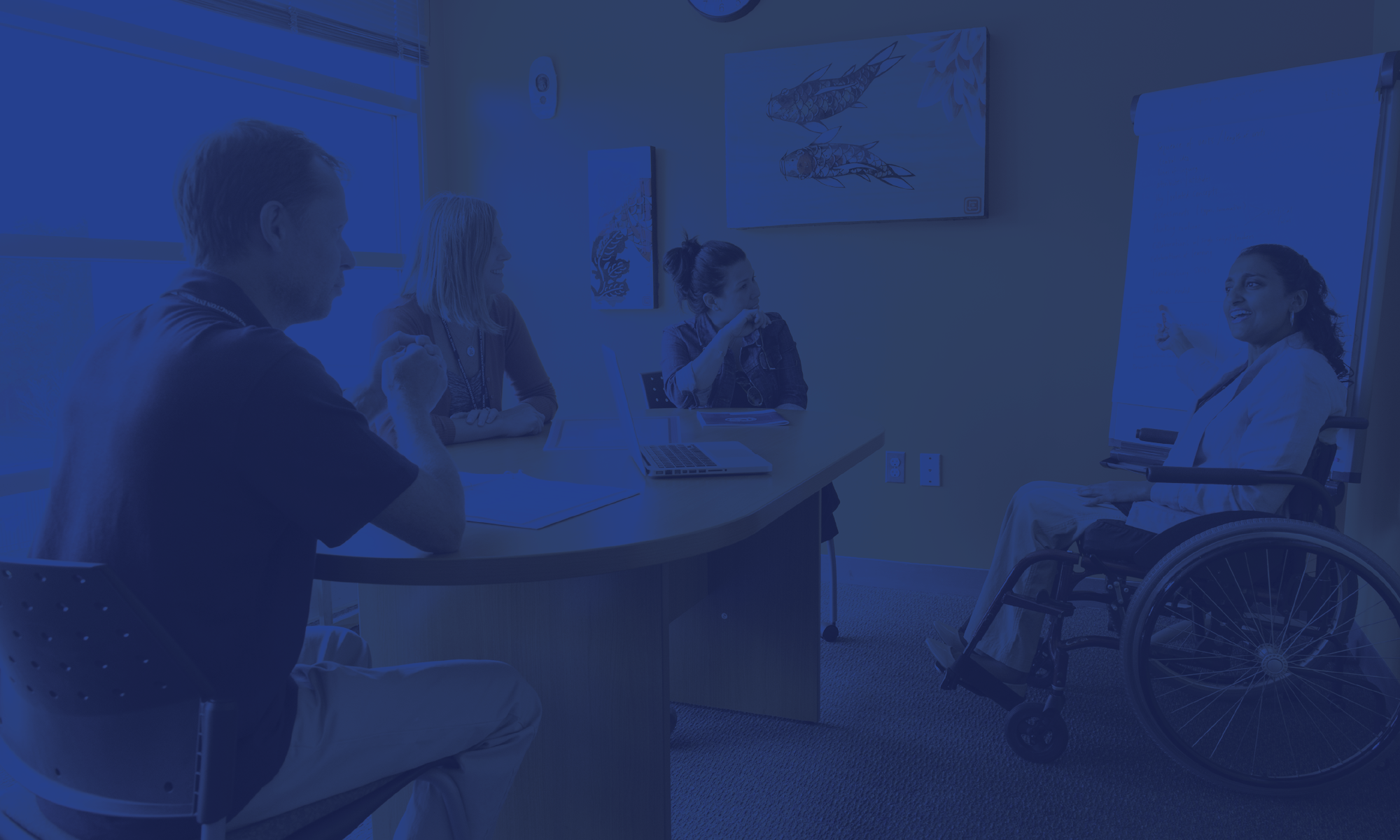By Katherine Emerson, Roosevelt Fellow
Youth and young adults with disabilities are employed at lower rates than their peers without disabilities. College is one pathway that can help students with disabilities prepare for employment. Individuals with disabilities who complete some college or earn an associate’s or a bachelor’s degree are employed at higher rates than individuals who do not.
However, fewer than 35% of students with disabilities graduate from four-year institutions within eight years. College students with disabilities could therefore benefit from additional supports and services to succeed in college and prepare for their careers. Ohio’s College2Careers program is a state initiative focused on providing supports to help students with disabilities succeed in college and beyond.
Establishment and Funding
College2Careers is a state-wide program that supports students with disabilities at colleges and universities in Ohio to help them complete their degree and/or credential, earn higher wages, and meet the demands of the labor market. The program was created and funded by Gov. Mike DeWine’s Executive Budget for fiscal year 2020-2021 through the Opportunities for Ohioans with Disabilities (OOD) agency as part of a larger effort to support Executive Order 2019-3D. The financial support is meant to expand employment opportunities for people with disabilities by providing personal assistance services, particularly for transitional youth, to “encourage and support individuals with disabilities to fully participate in the social and economic life of Ohio and engage in competitive integrated employment.” This formal mechanism established Ohio as a state as a model employer and prepared College2Careers is a state-wide program that places individuals in career pathways.
The College2Careers program is operated by the Opportunities for Ohioans with Disabilities (OOD). Susan Pugh, deputy director of the Bureau of Vocational Rehabilitation at OOD, explains that the Ohio College2Careers program achieves this by “embed[ding] a vocational rehabilitation counselor into the disability services or the career services” at participating colleges and universities. The program is currently offered at 17 campuses, two of which are the state’s only historically black colleges and universities.
Program Components
As of 2022, the College2Careers program serves approximately 1,500 college students and addresses the following topics through activities, workshops, help sessions and networking facilitated by a Vocational Rehabilitation Counselor:
- Career exploration and counseling.
- Assistive technology.
- Resume and interview preparation.
- Internships and permanent employment placement.
- Assistance navigating OhioMeansJobs resources.
- Connection to an expansive employer partner network.
- On-the-job supports for permanent employment upon graduation.
According to Marcia Ballinger, PhD and President of Lorain County Community College, the program “add[s] to the base of support already in place…and provide[s] the added targeted help [students with disabilities] need to finish a credential or degree that leads to meaningful employment.”
Two career development specialists from OOD also work with the disability and career offices at participating institutions to facilitate the hiring of students with disabilities in internships and potential permanent placements. The vocational rehabilitation counselor at each college campus can obtain further resources to ensure the academic and vocational success of students. In the words of President of Central Ohio Technical College John M. Berry, PhD, “the OOD counselor we have on-site helps with everything from career counseling to placement services. She works with our students to make sure they are making progress toward their employment goals.”
Other State Examples
Ohio’s College2Careers program is just one example of a state initiative to better support college students with disabilities in their transitions to the workforce.
- California Assembly Bill 504 requires community colleges to develop student equity plans that must identify underrepresentation for specific categories of students (including those with disabilities) in access to, and completion of, basic skills, career technical education and workforce training.
- In Delaware, Supported Education at the Delaware Technical & Community College Program is a collaboration between the Division of Vocational Rehabilitation and Delaware Technical & Community College. The program supports students in their coursework while they also enroll in a certificate program or enter a skills training program and gain employment in an area of interest to the student.
- The Puerto Rico Vocational Rehabilitation Administration places counselors in the facilities of the Río Piedras and Mayagüez campuses of the University of Puerto Rico to provide services to eligible students.
As illustrated in these examples, states can take various approaches to supporting college students with disabilities. Ohio and Puerto Rico have taken the approach of placing counselors at colleges and universities to support students, whereas Delaware offers an intensive year-one program and California requires community colleges to assess and improve equity. Localized vocational supports, such as those in Ohio, Delaware, and Puerto Rico, work with students directly to place them on career pathways. These approaches are personalized and utilize connections between students, vocational rehabilitation staff and businesses. Policy changes such as the legislation enacted in California allow for broader changes to college climates and practices.
